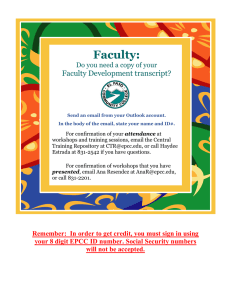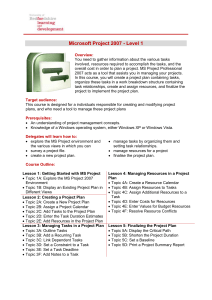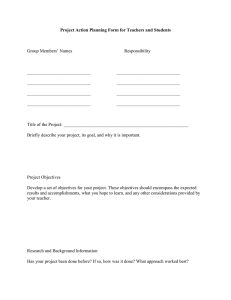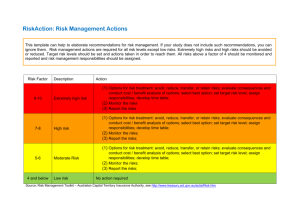Faculty Development Newsletter October 2015 Faculty Development Office
advertisement
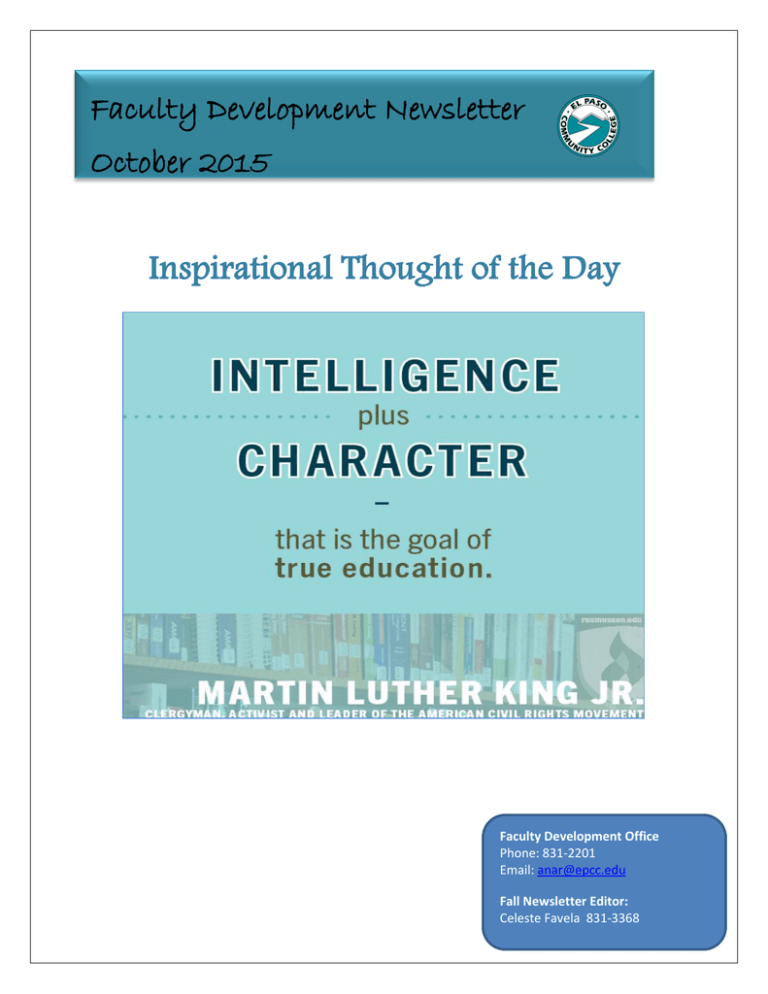
Faculty Development Newsletter October 2015 Faculty Development Office Phone: 831-2201 Email: anar@epcc.edu Fall Newsletter Editor: Celeste Favela 831-3368 Testing Services Wins New Faculty Expo Table Contest Each semester, the Office of Faculty Development sponsors an Expo for new faculty. Various departments, disciplines, and groups come to the ASC to show faculty what EPCC has to offer. There is a table decorating contest for Expo participants. This year, the theme was “Mission With A Vision.” EPCC Testing Services created this semester’s winning table and received a trophy. Pictured are Barbara Hicks and Lucy Garcia. Congratulations! Faculty Development Week for spring 2016 (January 11-15) will feature a halfday presentation of workshops on “Teaching Critical Thinking.” Workshops can be scheduled from 8:00 a.m. through 11:00 a.m., with an informal forum beginning at noon where ideas from the morning workshops will be shared. All sessions will be held at the VV campus in adjacent rooms to facilitate attendance at two or more workshops. This topic was selected by faculty from workshop evaluation forms in August 2015. Plan to present your techniques, assignments, etc. and fill out the Teaching Critical Thinking proposal form sent to you by email on Oct. 5, and submit your proposals by Oct. 16 to the Faculty Development Office. Proposals for workshops during the week on other topics are also welcome and should be made on the general proposal form, also due by Oct. 16. For questions, call Ana Resendez at x2201 or Ruth Vise at x8841. By Kathleen A. Bombach Assistant Professor, English Discipline Trust but Verify: Why You Should Use Safe Assign This morning (during Summer II) I opened a students’ assigned research paper for English 1302. As usual I opened the student’s Blackboard Safe Assign (SA) report. To my surprise, the SA information showed that the student had simultaneously submitted the same paper in History 1302 and Education 1300 for Summer I. I then looked at the paper itself, and discovered it was regurgitated Government textbook information with a lot of personal commentary—definitely not a paper meeting any reasonable definition of a college level research paper. What is the lesson here? Safe Assign works, even if it is not perfect. Because three faculty members in different disciplines had all submitted their student papers to Safe Assign, a student learned an important lesson, and so did I. All faculty members should use Safe Assign for any written papers. Typically, we think we are good at detecting plagiarism, but we are not. My first semester of using Safe Assign, I found that 70 percent of the first papers turned in contained plagiarized content, a much higher percentage that I had deduced on my own. Now I show my students how Safe Assign works in the beginning of class, and the number of papers with plagiarized content has dropped to 23 students per class on the first paper, usually none on the second and following papers. The consequences of plagiarism go beyond college, although the consequences in college can be severe. Many universities put students on academic probation or expel them for plagiarism, something that shows up on a transcript for employers and graduate and professional schools to see. Our students must also learn the lesson of not plagiarizing before they plagiarize something for a job and their employer is sued for theft of intellectual property by the original copyright holder. These lawsuits are becoming more common. Intellectual property lawyers scroll the internet, looking for copyright infringement so they can file lawsuits against deep pocket schools employers. They are pejoratively called patent/copyright trolls, but they are out there. We do our students a favor to use all the tools, like Safe Assign, to detect and address plagiarism early, when we can teach them the consequences (following the Student Code of Conduct policy at EPCC) without destroying their college career or jeopardizing a professional level job. Safe Assign allows us to “trust but verify,” to quote Ronald Reagan. Congratulations to… Minnie Stevens Piper Award Nominees: Edith Aguirre, Math MDP Carlos Amaya, Biology VV Alvaro Arvizo, Speech VV Xiomara Chianelli, Biology NW Roselia Galindo, Reading VV Adriana Garcia, Sign Language VV Grace Haddox, English TM Norman Love, History RG Jose Pacheco-Lucero, Biology NW Nader Rassaei, Pharmacy Technology RG Patricia Shanaberger, Nursing RG Faculty Achievement Award Nominees: Carlos Armendariz, Counseling VV Oscar Baeza, Library VV Norma Ballenger, Library MDP Michelle Conklin, Education NW Zaira Crisafulli, English TM Gertrud Konings-Dudin, Biology TM Sandra Lujan, Counseling VV Peter Maas, English VV Virginia Madrid, Nursing RG Rebecca McGill, English VV Lesley Pullen, English VV Robin Russell, English VV Christian Servin, Computer Science VV Good Luck to Each One of You! The “DO NOW” Process Many educators use a “Do Now,” a Bell Ringer, or some other type of warm-up activity. However, I have discovered the Do Now is far more than a warm-up. It’s a process that addresses several best-practices strategies. However, to be effective, it must be done consistently! The “Do Now” addresses several best practices strategies: Provides continuous-consistent Review. Helps students connect prior knowledge with new concepts. Serves as a quick assessment tool for the instructor Provides Instant feedback for students. Allows for early intervention: Instructor can address skill deficiencies before the first exam. To view the entire article, visit http--www-tcall.tamu.edu-newsletr-images-15TAELQSummer.jpg Please send news items and photos by October 30, 2015, for November’s newsletter to cdelgad6@epcc.edu Celeste Favela, Faculty Development Coordinator
